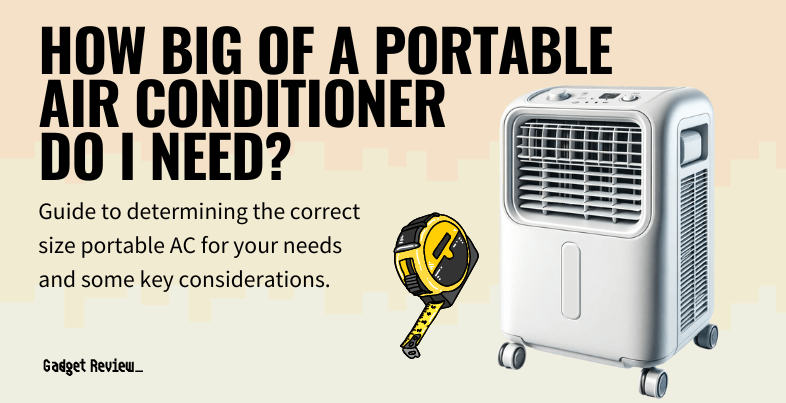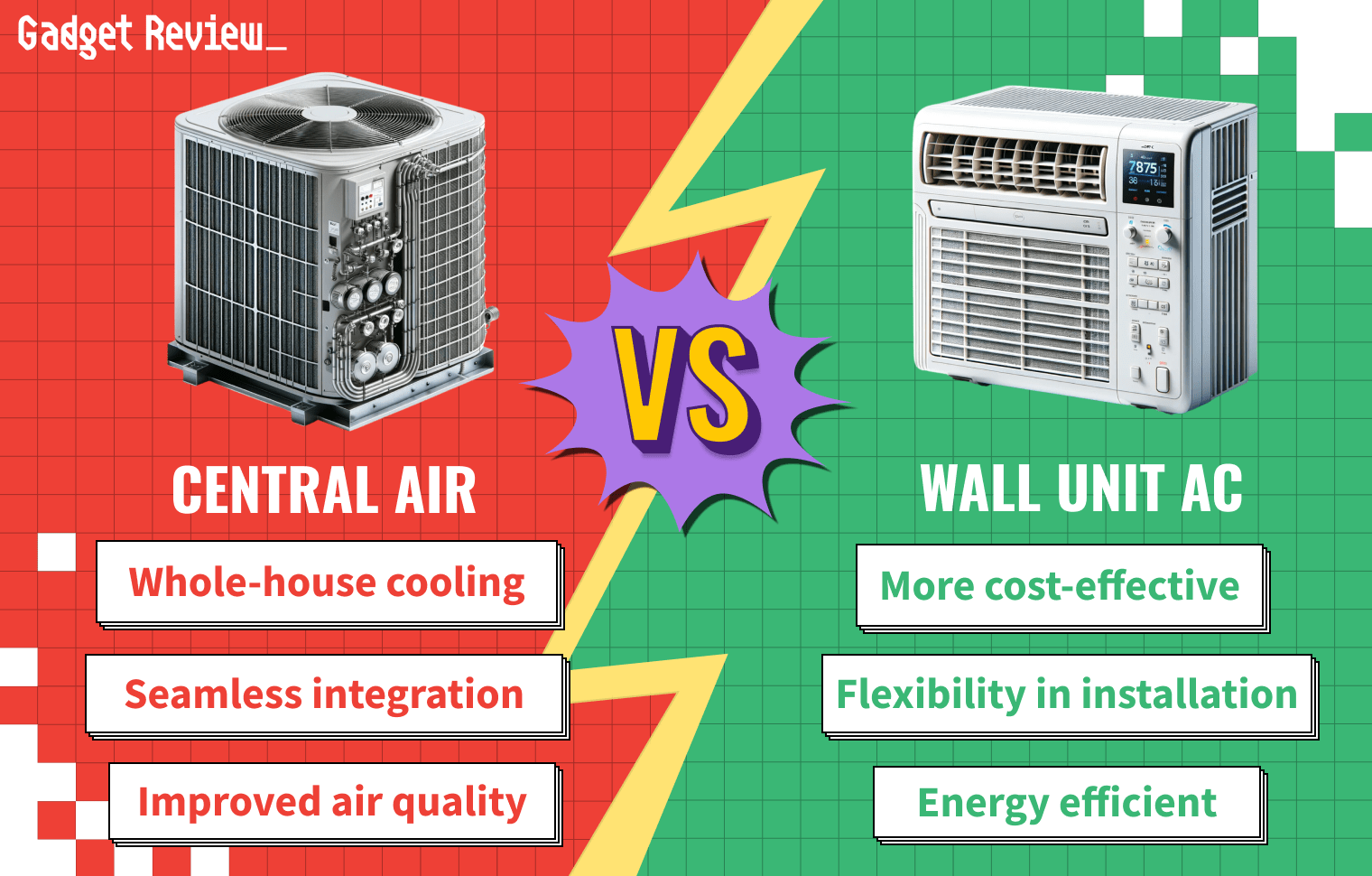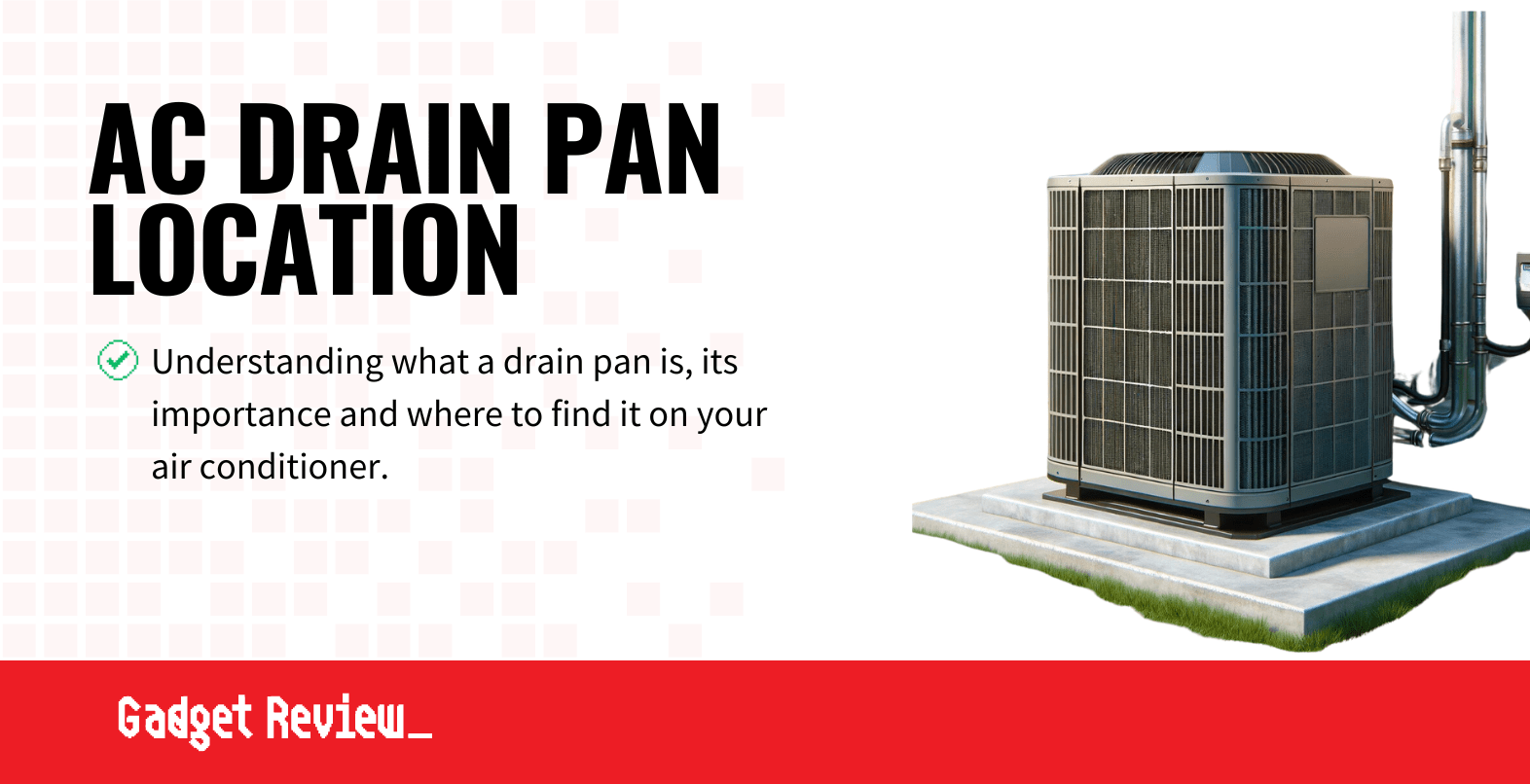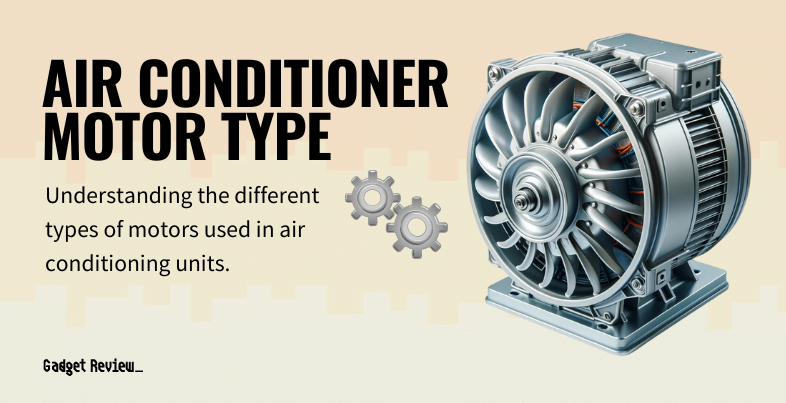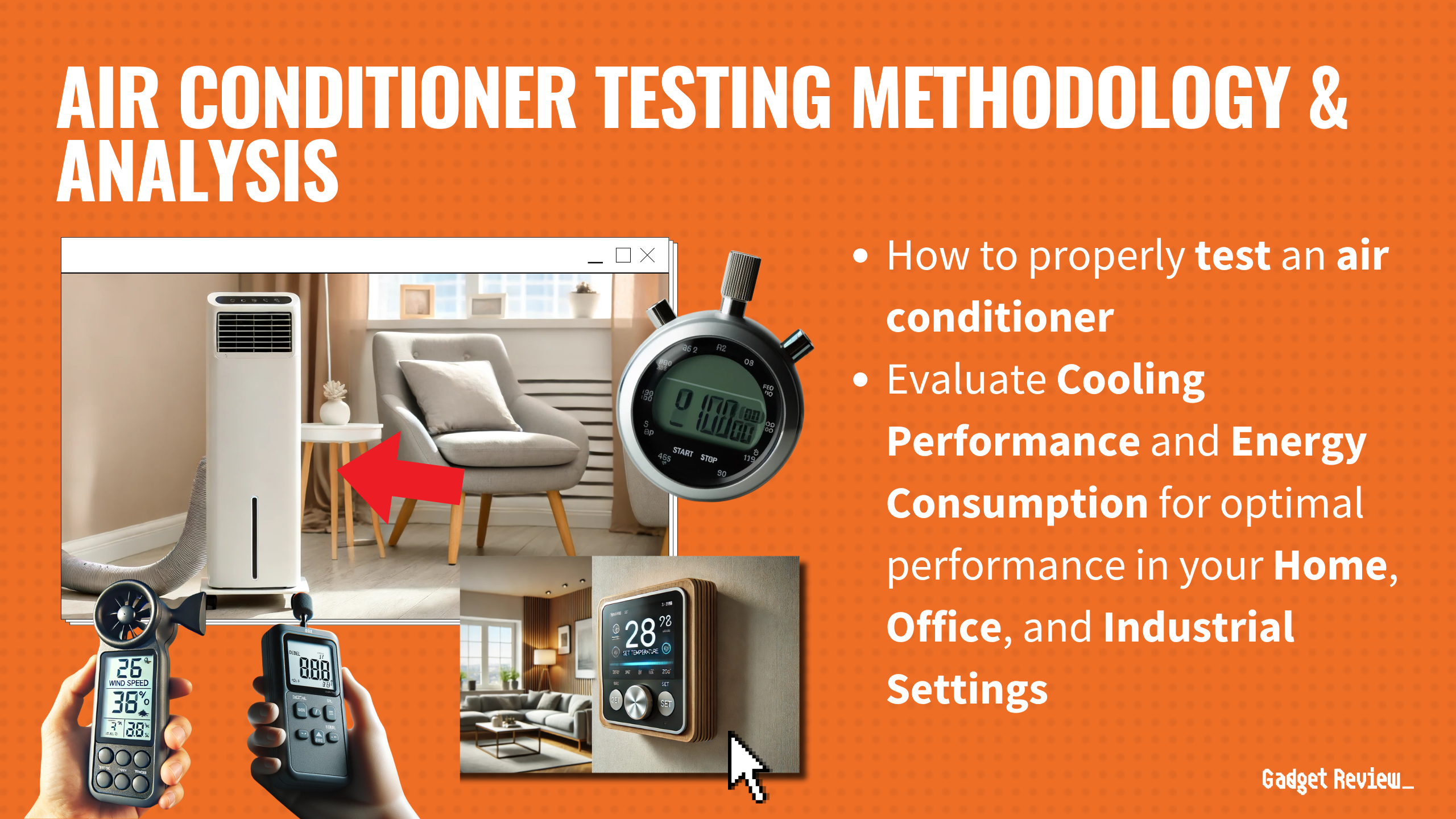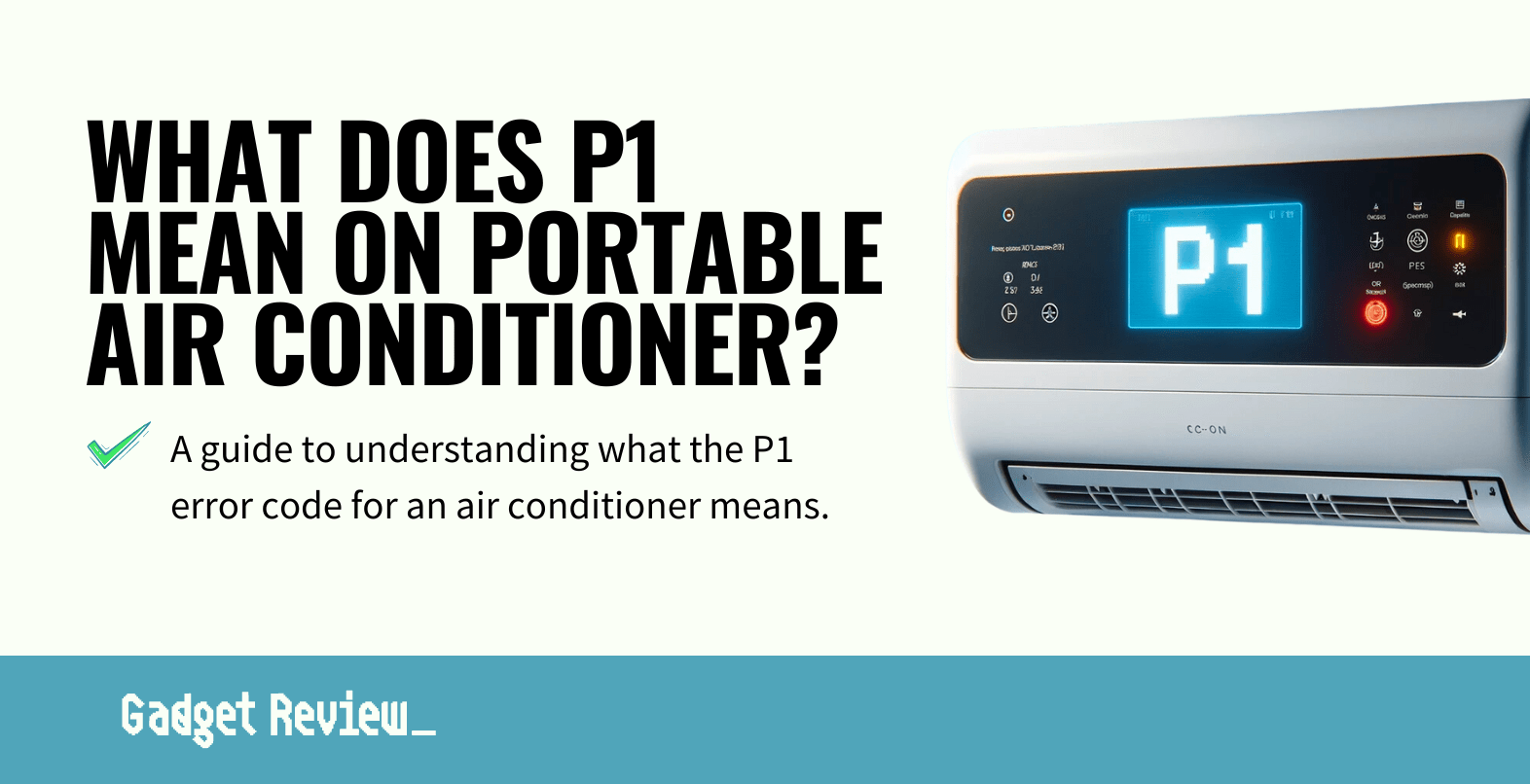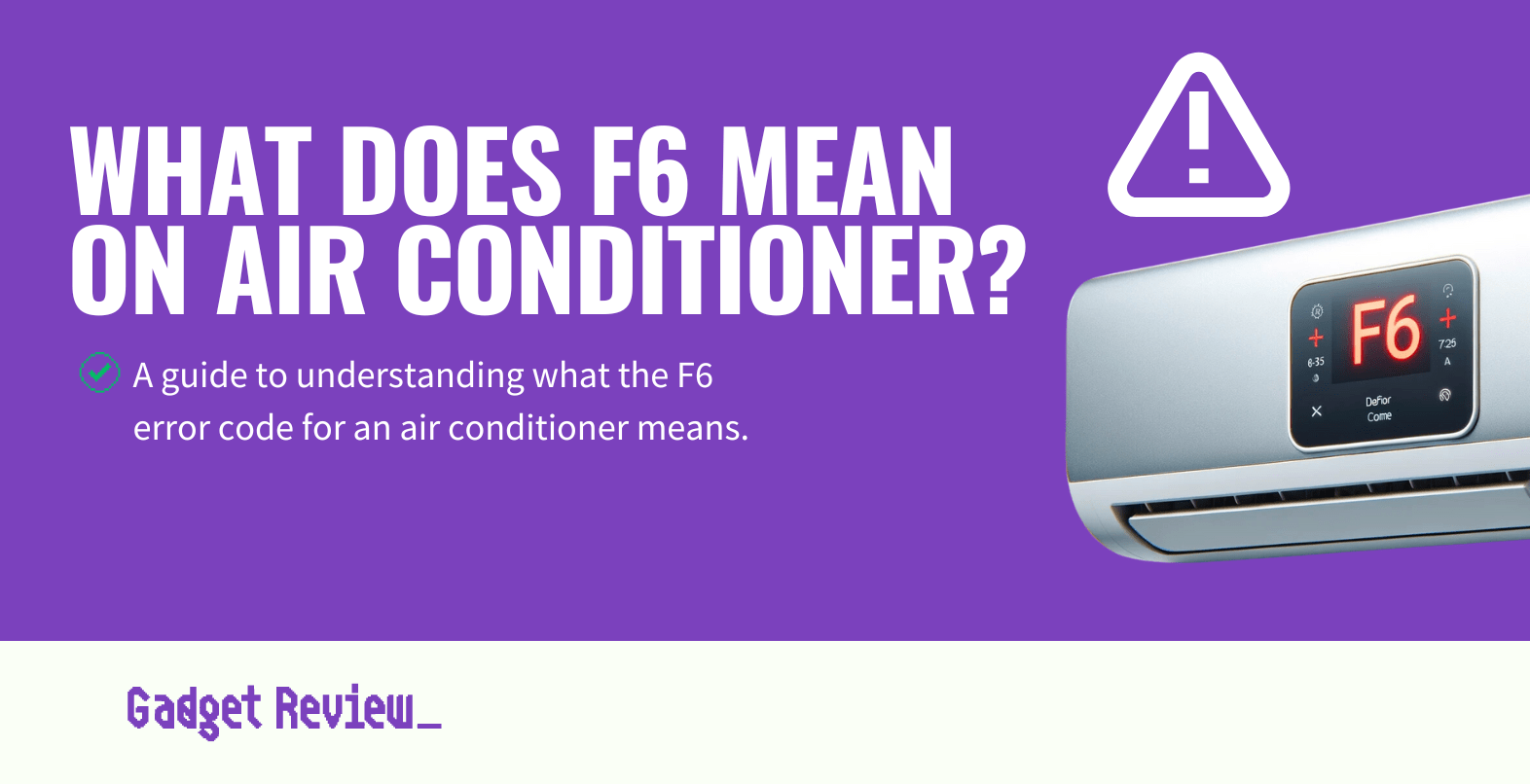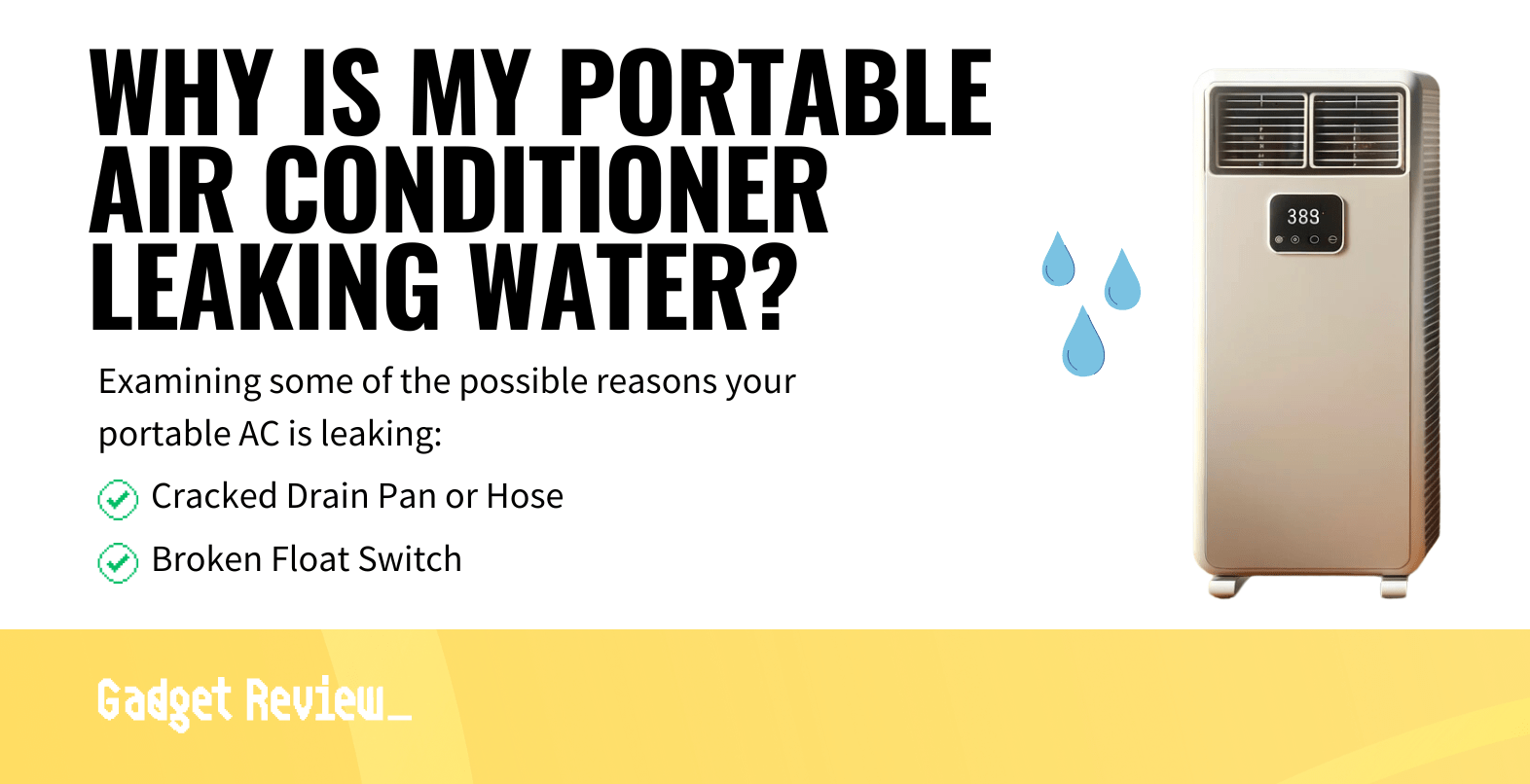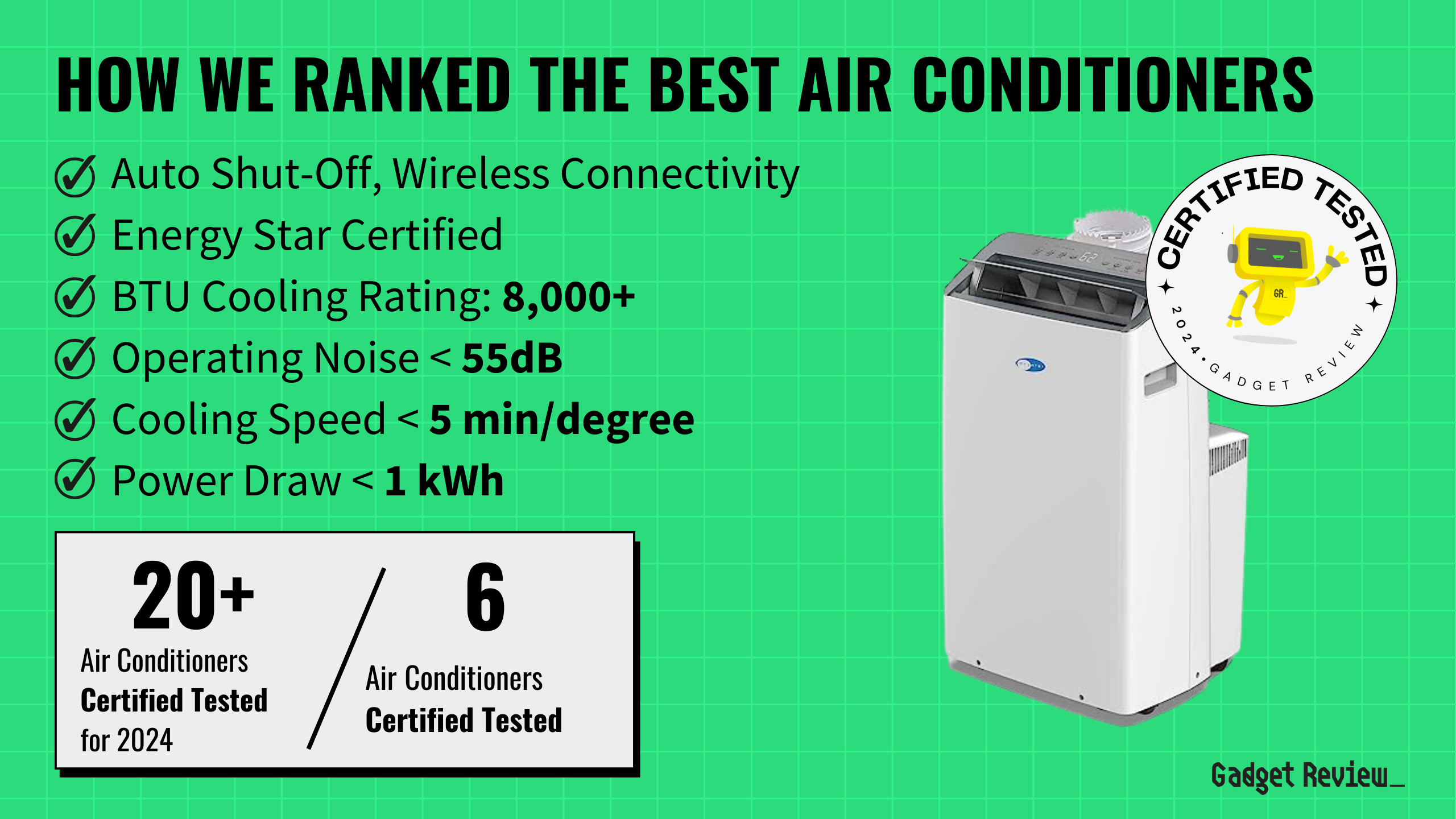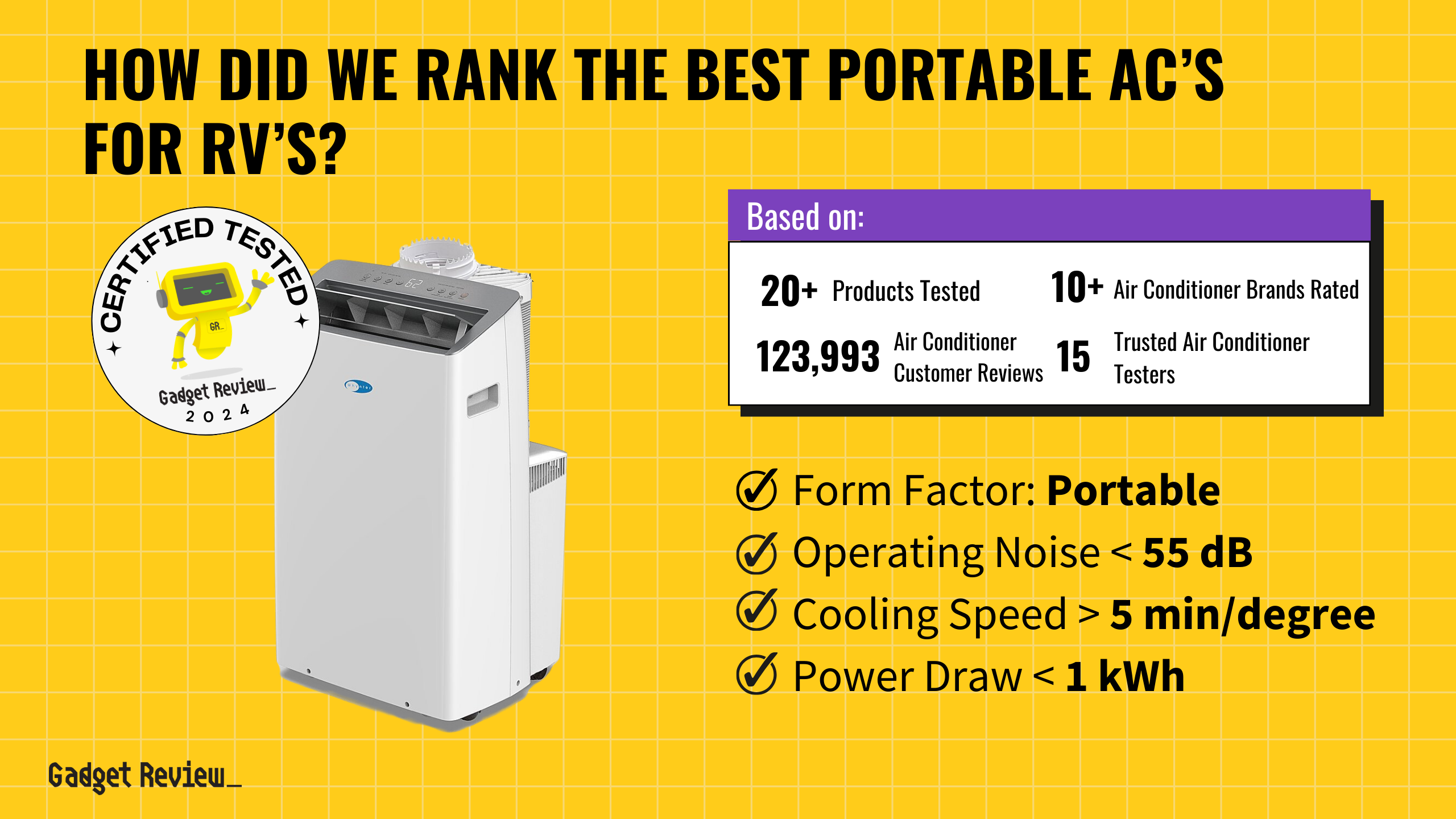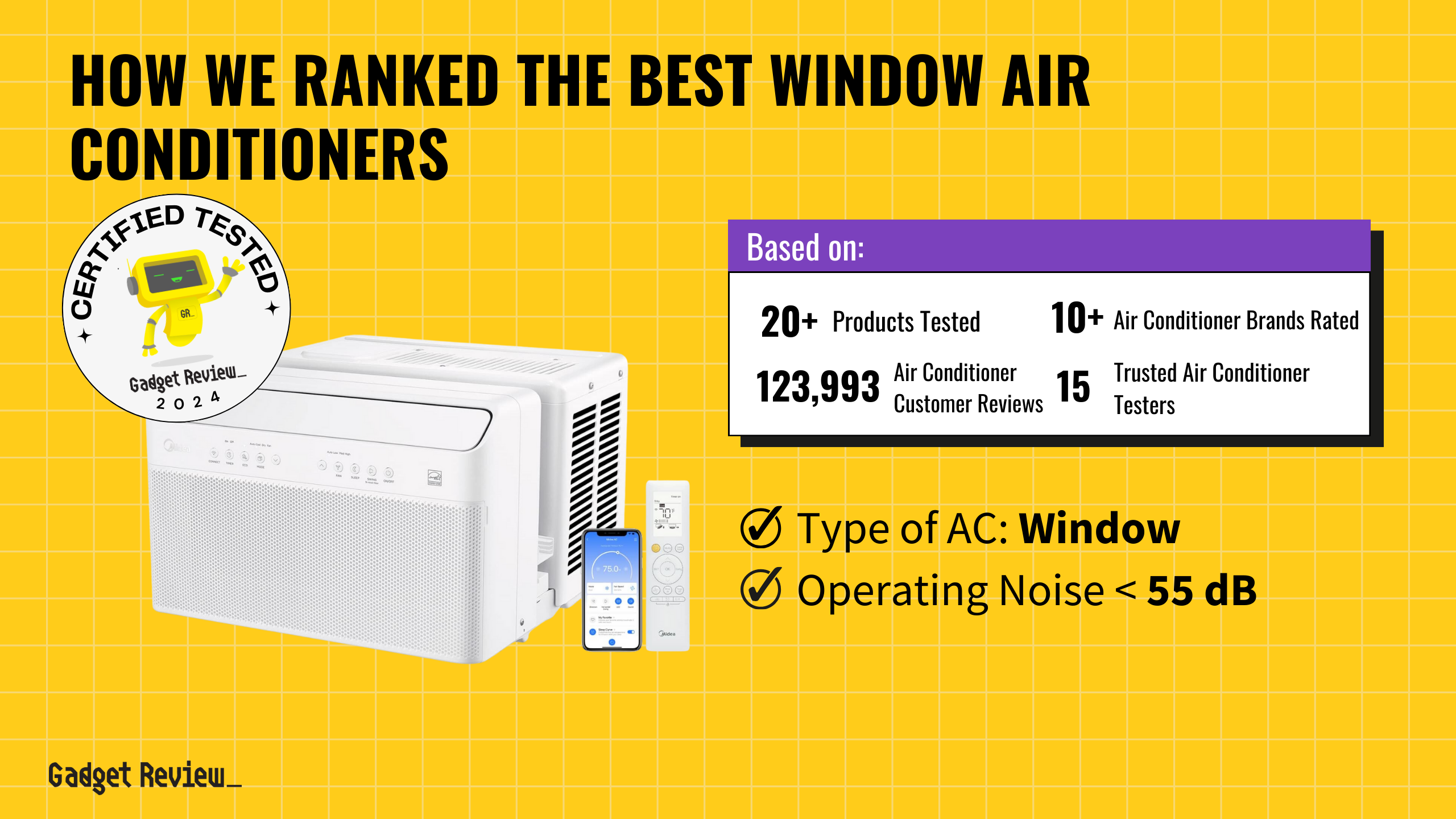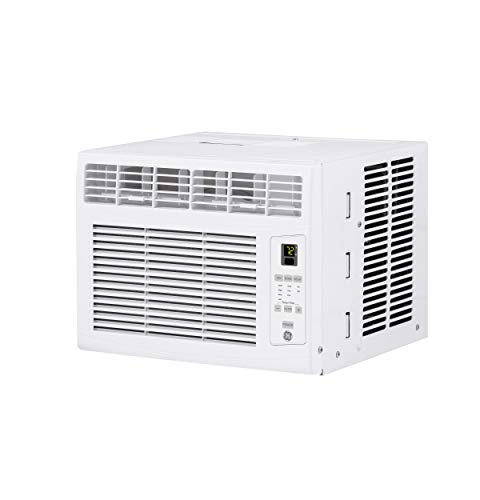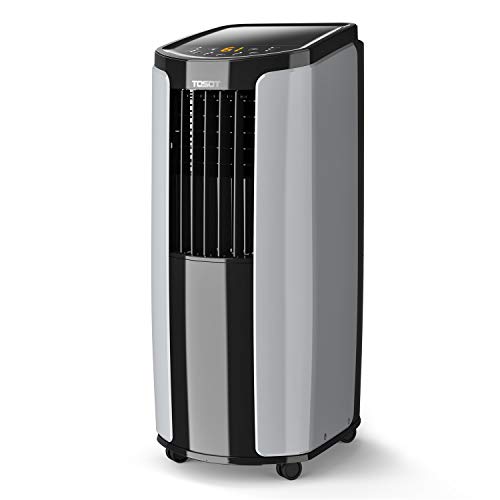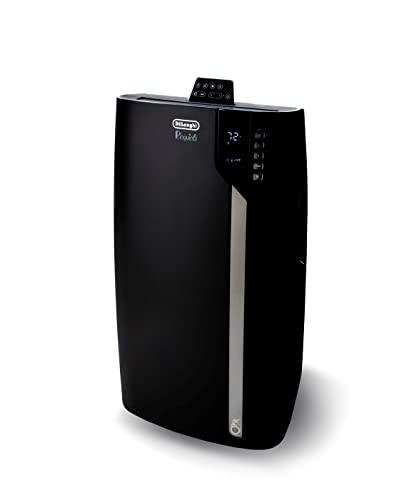As summer approaches, the quest for the perfect cooling solution becomes paramount in our homes. Among the plethora of options, portable air conditioners stand out for their versatility and ease of use. Unlike some of the top air conditioners, portable units offer the convenience of mobility and are ideal for spaces where traditional window ACs or split-system air conditioners are impractical. In this article, we will explore into the essentials of choosing the right portable air conditioner, focusing on size, energy efficiency, and additional features to ensure your living space remains at the ideal temperature through the sweltering summer heat.
Key Takeaways_
- When you refer to sizing a portable air conditioner, you are referencing the unit’s cooling power.
- A portable AC’s cooling power is measured in British Thermal Units, otherwise known as BTUs. The same goes for window air conditioners.
- An air conditioner needs 20 BTU for every square foot of floor space, so conduct the proper measurements and purchase accordingly.
How to Determine the Right Size Portable AC
None of this sizing has to do with the actual weight or girth of the unit. In fact, for this sort of sizing, you’ll want to know other info, like how to move an air conditioning unit, how to store a portable A/C, and how to use a portable air conditioner.
What is a BTU and Why Does It Matter?
The cooling power of air conditioners is measured in British Thermal Units (BTUs), which indicate the amount of energy required to raise or lower the temperature of a pound of water by one degree Fahrenheit.
For portable air conditioners, the BTU rating is a crucial factor in determining the unit’s cooling capacity. A higher BTU rating signifies a more potent cooling ability, essential for efficiently lowering room temperatures.
Types of Portable Air Conditioners
Portable air conditioners come in various models, each suited to different cooling needs and spaces.
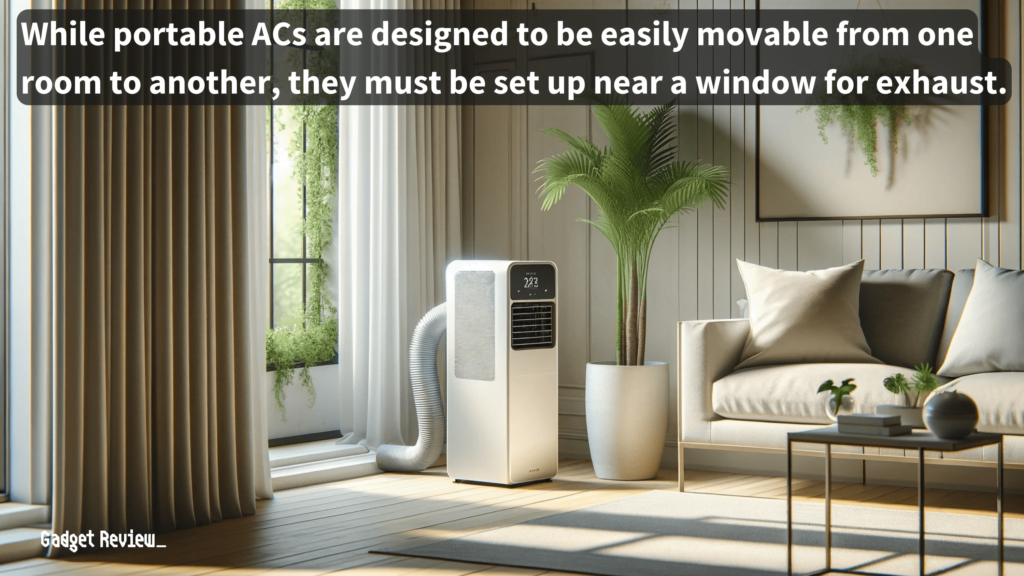
- Single-hose units are common and work by drawing in room air, cooling it, and expelling the warm air through an exhaust hose.
- On the other hand, dual-hose portable air conditioners pull fresh air from outside to cool the unit and expel hot air, making them more efficient for larger spaces.
Understanding these types can help you choose the most efficient unit for your cooling requirements.
Calculating Your Space
To select the right portable AC size, start by calculating the square footage of your room.
Measure the length and width of the space and multiply these figures to get the square footage.
Remember, ceiling height matters too; rooms with 8-foot ceilings are the standard, but higher ceilings will require a unit with more BTUs per hour due to the increased volume of air.
BTU Requirements for Different Room Sizes
A general guideline is that a room of 200 square feet needs an 8,000 BTU unit, while a 300-square-foot space requires around 10,000 BTUs.
However, factors like direct sunlight, high humidity, and the presence of heating devices can increase these requirements.
insider tip
The BTU rating of any given air conditioning model should be clearly advertised on the packaging and in the instructions.
Ensure your chosen model provides efficient cooling without being oversized, as oversized air conditioners can lead to excess humidity and energy wastage.
Key Considerations When Choosing a Portable AC
Energy Efficiency and Cost Savings
Energy efficiency is paramount when selecting a portable air conditioner. Look for models with a high Energy Star rating to ensure lower energy bills and minimal environmental impact.
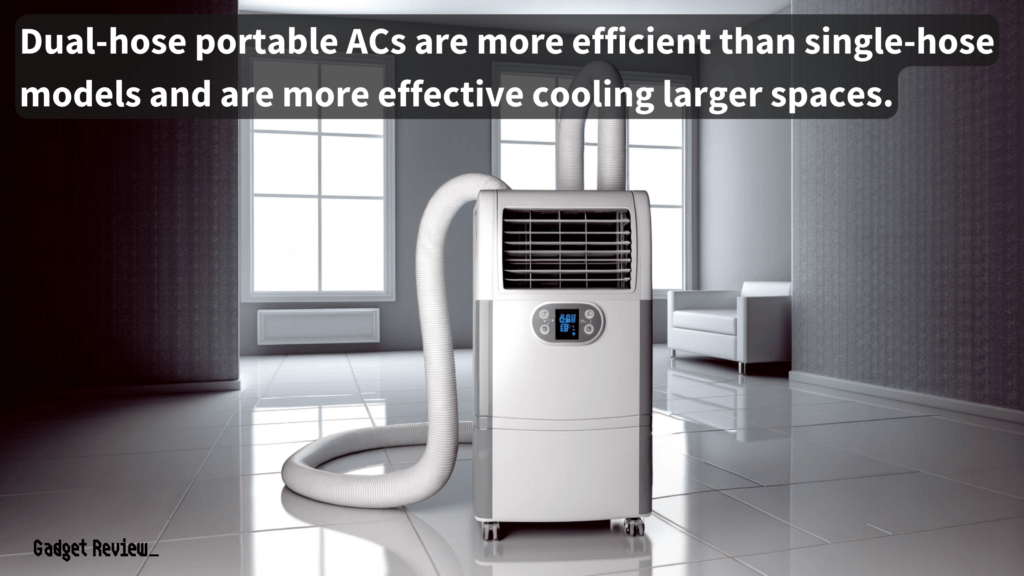
The energy efficiency ratio (EER) is also a key indicator; the higher the EER, the more energy-efficient the unit.
Noise Levels: Finding a Quiet Portable AC
Consider the noise level of the portable air conditioner, especially for bedrooms or quiet spaces. The noise level is measured in decibels (dB), and a unit operating at the level of a normal conversation (around 60 dB) is ideal for most homes. Features like sleep modes can further reduce noise during nighttime operation.
Advanced Features to Consider
Smart Features and Connectivity
Modern portable air conditioners come equipped with smart features, including Wi-Fi connectivity and remote controls, allowing you to adjust settings from your smartphone or device.
This convenience enhances your ability to maintain an ideal temperature and humidity level, even when you’re away from home.
Additional Modes and Functions
Beyond cooling, many portable units offer additional modes such as heating, dehumidifying, and air purifying, making them versatile year-round solutions.
Dual-hose models, in particular, offer efficient venting and cooling, while features like auto-evaporation systems minimize the hassle of draining collected water, enhancing the unit’s overall convenience and usability.
Making Your Decision
When it’s time to make your choice, weigh the portable air conditioner’s BTU capacity against your room’s square footage, considering any factors that might affect its cooling efficiency.
Balance the unit’s energy efficiency with its features and your budget, ensuring it meets your specific cooling needs without overspending. Remember, the ideal portable AC should offer a blend of efficient cooling, energy efficiency, and convenient features that align with your lifestyle and space.
STAT: Keep in mind that as the BTU rating increases, the size and weight of the air conditioner do as well. (source)
In the end, choosing the right portable air conditioner involves more than just picking the first model you see. It requires understanding your space’s specific needs, from square footage and ceiling height to the unique challenges posed by summer heat and humidity.
By considering the factors outlined in this guide, from BTU requirements and energy efficiency to noise levels and advanced features, you can make an informed decision that ensures comfort throughout the hot months.
With the right portable air conditioner, you can enjoy a cool, comfortable environment in any room of your home, all summer long.


